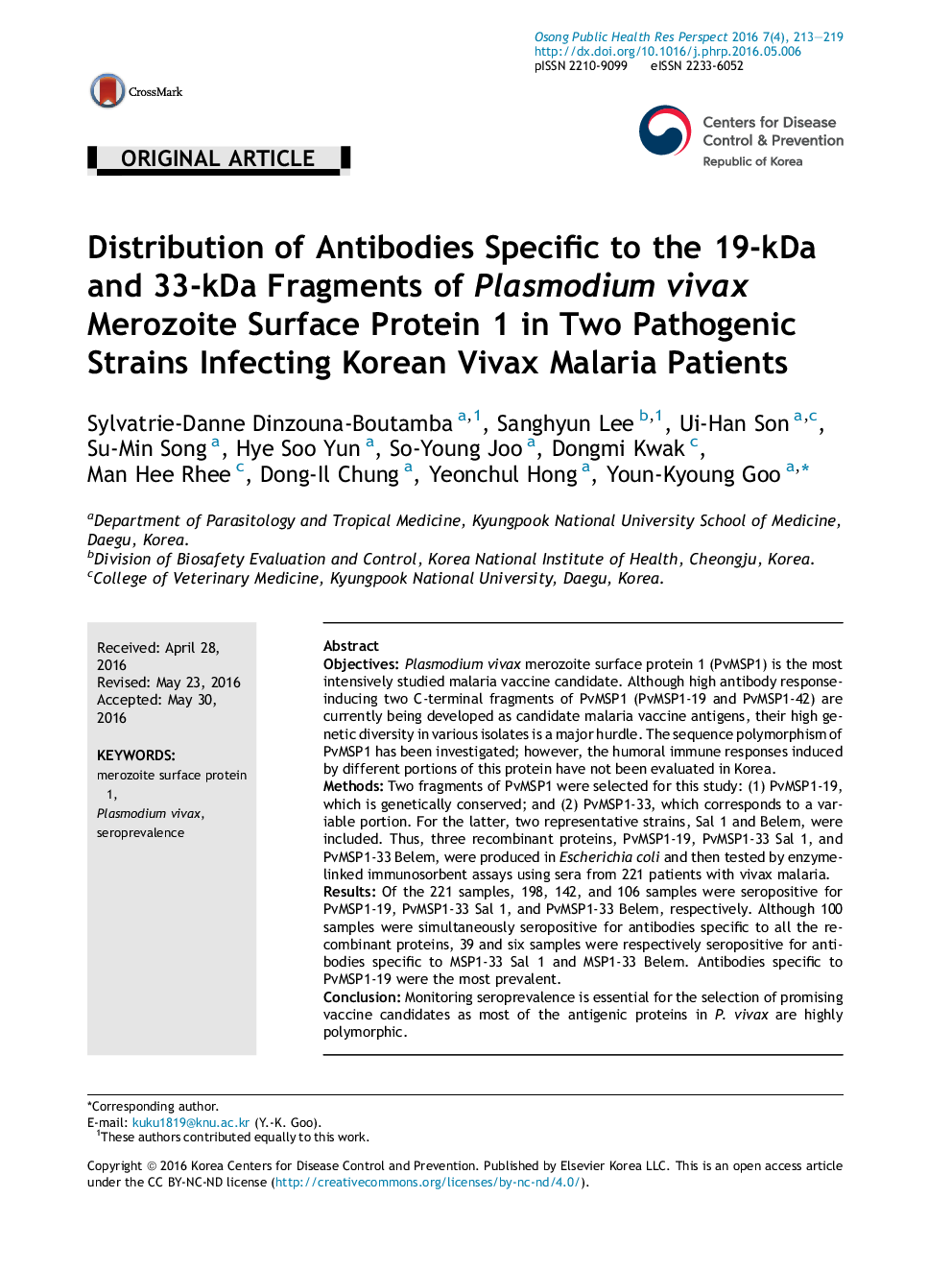| کد مقاله | کد نشریه | سال انتشار | مقاله انگلیسی | نسخه تمام متن |
|---|---|---|---|---|
| 4201824 | 1609079 | 2016 | 7 صفحه PDF | دانلود رایگان |
ObjectivesPlasmodium vivax merozoite surface protein 1 (PvMSP1) is the most intensively studied malaria vaccine candidate. Although high antibody response-inducing two C-terminal fragments of PvMSP1 (PvMSP1-19 and PvMSP1-42) are currently being developed as candidate malaria vaccine antigens, their high genetic diversity in various isolates is a major hurdle. The sequence polymorphism of PvMSP1 has been investigated; however, the humoral immune responses induced by different portions of this protein have not been evaluated in Korea.MethodsTwo fragments of PvMSP1 were selected for this study: (1) PvMSP1-19, which is genetically conserved; and (2) PvMSP1-33, which corresponds to a variable portion. For the latter, two representative strains, Sal 1 and Belem, were included. Thus, three recombinant proteins, PvMSP1-19, PvMSP1-33 Sal 1, and PvMSP1-33 Belem, were produced in Escherichia coli and then tested by enzyme-linked immunosorbent assays using sera from 221 patients with vivax malaria.ResultsOf the 221 samples, 198, 142, and 106 samples were seropositive for PvMSP1-19, PvMSP1-33 Sal 1, and PvMSP1-33 Belem, respectively. Although 100 samples were simultaneously seropositive for antibodies specific to all the recombinant proteins, 39 and six samples were respectively seropositive for antibodies specific to MSP1-33 Sal 1 and MSP1-33 Belem. Antibodies specific to PvMSP1-19 were the most prevalent.ConclusionMonitoring seroprevalence is essential for the selection of promising vaccine candidates as most of the antigenic proteins in P. vivax are highly polymorphic.
Journal: Osong Public Health and Research Perspectives - Volume 7, Issue 4, August 2016, Pages 213–219
